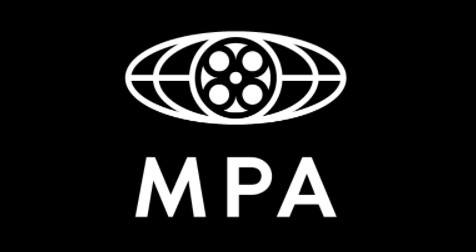 When several major studios filed a copyright lawsuit against PrimeWire last year, it shouldn’t have come as a huge surprise. However, it happened – it was a long time ago.
When several major studios filed a copyright lawsuit against PrimeWire last year, it shouldn’t have come as a huge surprise. However, it happened – it was a long time ago.
Over a decade ago, a successful pirate streaming site called LetMeWatchTh reportedly ran into trouble in the field and, after a quick rebranding exercise, is back as 1Channel. What prompted the site to change its name again isn’t clear, but after adopting the name PrimeWire, traffic poured in from all over the world.
Due to legal action in Hollywood, PrimeWire was among the first 30 websites blocked in the UK in 2013, but that was only the beginning. Similar banning orders followed in Australia, Ireland, Norway, Denmark, Portugal and beyond.
Despite being given the opportunity to protest at least some of these bans, PrimeWire never showed up in court to offer a defense, even via email. When the MPAA reported the site to the USTR in 2013, it was hoped that PrimeWire would fold, but despite additional reporting over subsequent years, it has continued regardless.
It became a constant item on the Police Intellectual Property Crime Unit’s “List of Offending Websites” was intended to build pressure. However, as far as we know, Hollywood never sued. Almost nine years ago, the MPA believed PrimeWire’s servers were in Estonia, but while access to the hardware could be useful, hard drives could not be sued.
Film and TV giants such as PrimeWire
Then, in December 2021, Paramount, Universal, Warner, Columbia, Disney and Netflix sued PrimeWire in the US, seeking damages in the millions and a critical injunction, the first of which was awarded in early 2022.
True to its ancient traditions, PrimeWire immediately moved to neutralize potential domain takeovers while it continued as normal, in defiance of the injunction.
A few weeks after that, PrimeWire suddenly became “legal” by removing all links to pirated movies and TV shows, then vowed to install download filters to prevent further piracy. There was even some email correspondence with the plaintiffs which, if anything, was even more surprising.
Traffic tanks, Hollywood piles on pressure
After removing the pirated content, PrimeWire’s traffic immediately collapsed by more than 60%, but the studios were unaffected. Based on past patterns of behavior, they believed PrimeWire could make a comeback, so they pressed for a default judgment and a permanent injunction.
The court agreed and awarded a partial tort award with damages at a later date. PrimeWire has been ordered shut down – whether or not any pirated content is still available through the site. Some registrants still haven’t complied with the terms of the initial injunction, which means PrimeWire still has domains and a web presence.
PrimeWire never officially appeared in the lawsuit, so it was never likely to win. Importantly, he was not locked down either and in July he attempted to return, but was quickly thwarted by MPA investigators.
Memos in the case during October revealed that the MPA had gone to extraordinary lengths to track down the operator of PrimeWire but ultimately encountered shell companies, various obfuscation measures, and ultimately a dead end. Specifically, a small but notorious UK property linked to international crime, money laundering and fried chicken.
The MPA cannot prove actual PrimeWire earnings
Despite the studios’ best efforts to estimate PrimeWire’s earnings, the odds were always against them. Instead, they asked for a judgment of $20.7 million, which is pretty reasonable in the scheme of things. Earlier this year, PrimeWire was allegedly serving 10,000 titles owned by Claimant Studios and in October 2021, it had 20 million visitors from the US alone.
The studios aimed to go down by listing only 138 infringing works, but with a maximum statutory damages of $150,000 per work, which could add up soon. In his Dec. 9 ruling, Judge Mark Scarci agreed that the anonymous PrimeWire defendants were fully aware that their conduct was unlawful.
Particularly gross infringement, maximum damages
“The court found that the defendants committed willful violation, and deserve to be awarded enhanced damages. The behavior of the defendants is particularly egregious. Despite the plaintiffs’ repeated attempts to bring the defendants to court, the defendants either ignored plaintiffs’ emails or anonymously denied any wrongdoing. infraction,” according to Judge Scarsi’s ruling.
Furthermore, the defendants have evaded court orders by moving operations to different domain names, citing “final legal action” on their now-defunct web page. In addition, it is likely that the Plaintiffs over the large web traffic they obtained from streaming Plaintiffs’ illegally copyrighted work generated significant gains in advertising revenue at the expense of the Plaintiffs.”
Noting that the defendants’ conduct “leaves no doubt” that maximum statutory damages are justified, Judge Scarci highlights the value of copyright to studios, the revenue lost through PrimeWire’s actions, and particularly the negative impact on the legitimate broadcast market.
The judgment continues: “Defendants’ unauthorized and uncompensated use of copyrighted works causes significant loss of revenue because illicit streaming sources, like the Defendants, divert millions of dollars of paid viewing away from authorized sources that contribute to Plaintiffs’ revenue streams.” .
“The high value of the plaintiffs’ copyrights also supports the finding that defendants’ infringement causes significant loss of revenue. Finally, maximum statutory damages serve the purpose of deterring defendants and others from infringing the plaintiffs’ valuable works.”
In line with the studios’ request, the court awarded the maximum statutory damages of $150,000 per work, a total of $20,700,000 for the 138 works in the suit. The court also awarded $417,600 in attorneys’ fees, an amount described as “reasonable and appropriate”.
The proposed judgment, final judgment and minutes can be found here (1,2,3, pdf)